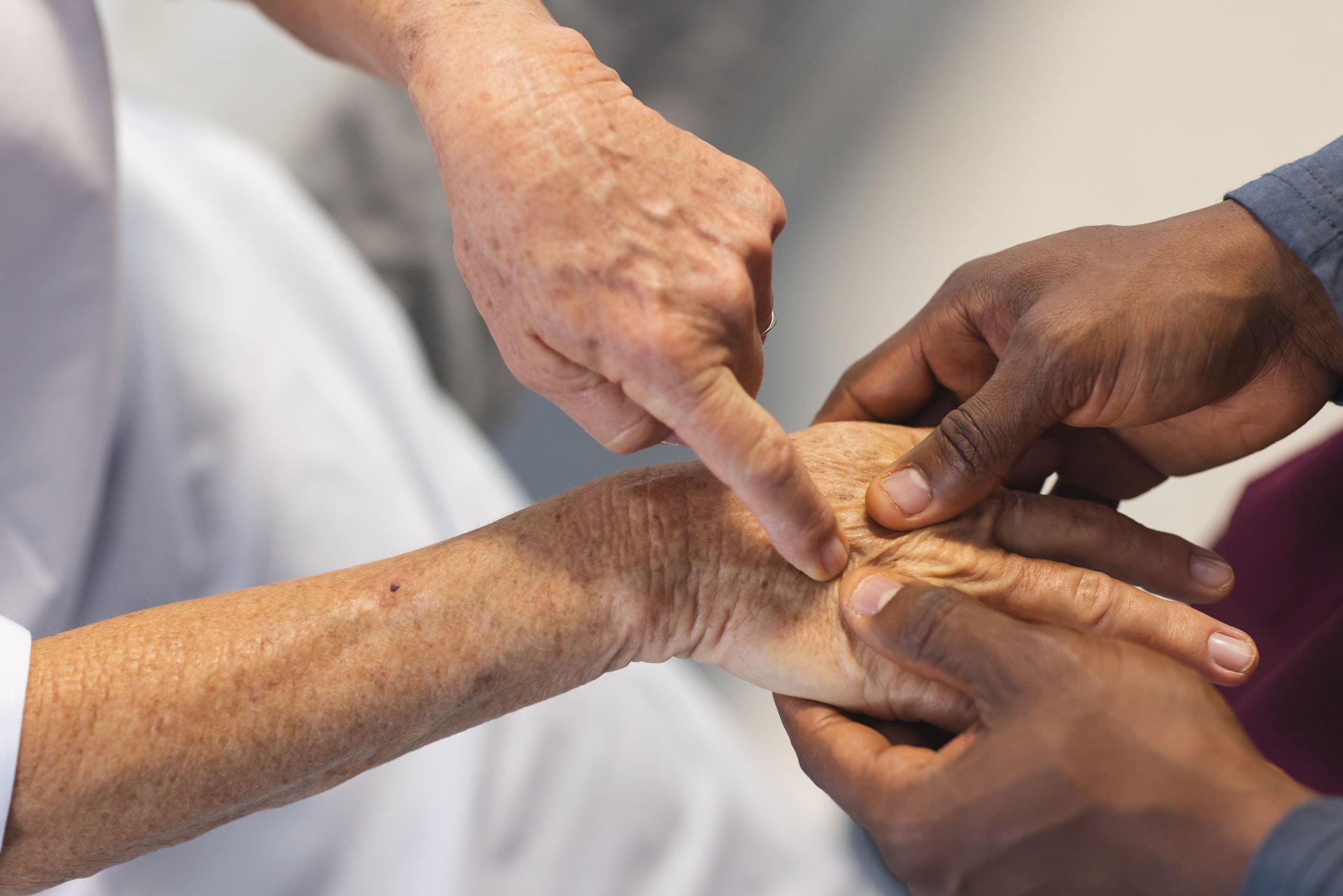Living with Parkinson’s disease presents unique challenges, but finding effective management strategies can significantly improve quality of life. In Lutz, Florida, individuals with Parkinson’s have access to a wealth of resources that can make a difference.
This blog will explore expert insights into managing Parkinson’s, emphasizing the importance of utilizing local resources, engaging with community support, and developing personalized care strategies tailored to the needs of those in Lutz. By focusing on these key areas, individuals can better navigate the complexities of Parkinson’s and enhance their overall well-being.
Community Support Groups: Building Connections and Finding Encouragement
Community support groups play a vital role in the lives of individuals managing Parkinson’s disease, offering an invaluable network of emotional support and shared experiences. In Lutz, Florida, joining a support group can lead to meaningful connections and a sense of community, which is crucial for emotional well-being.
Participating in a support group provides a platform for individuals to share their experiences, challenges, and victories with others who truly understand their journey. This sharing can help alleviate feelings of isolation and anxiety, which are common among those with Parkinson’s. Moreover, support groups often provide practical advice and coping strategies from both peers and professionals, enhancing daily management of the condition.
In Lutz, resources like the APDA Florida Support Groups offer no-cost access to a variety of support and educational opportunities for individuals with Parkinson’s and their caregivers. Additionally, the Parkinson Place Center, although based in Sarasota, extends its reach through online classes and events, making it accessible to those in Lutz. These resources foster a supportive environment where individuals can learn, engage, and find encouragement, ultimately improving their quality of life. By building a strong community network, individuals with Parkinson’s can better navigate their condition with confidence and hope.
Related: Carotid Artery Occlusion: Causes, Symptoms, and Treatment Approaches
Tailoring Personalized Care Plans for Parkinson’s Patients

Creating personalized care plans for Parkinson’s patients is a critical component in effectively managing the disease. These care plans are designed to cater to the unique needs and symptoms of each individual, ensuring that their treatment is as effective as possible. According to experts like Stuart H. Isaacson, MD, personalized care involves a comprehensive approach that integrates medical treatment with lifestyle changes and support systems.
Medical management typically includes tailored medication regimens to control symptoms such as tremors and rigidity. However, treatment goes beyond pharmaceuticals. Lifestyle adjustments, such as implementing regular exercise routines and dietary modifications, play a significant role in improving overall well-being and managing Parkinson’s symptoms.
Support systems are equally vital. These can include access to physical therapy, occupational therapy, and mental health counseling, which help address the physical and emotional challenges of living with Parkinson’s. Building a robust support network, whether through professional care or community resources, is essential for fostering resilience and maintaining quality of life.
In Lutz, Florida, patients have access to a range of resources that can be leveraged to develop these personalized care plans. By focusing on an individualized approach, patients can better navigate the complexities of Parkinson’s, ensuring a path towards improved health and a more fulfilling life.
Related: Hemicrania Continua: Rare Chronic Headache Disorder Overview
Exercise and Physical Therapy: Staying Active with Parkinson’s
Staying active through exercise and physical therapy is crucial for individuals with Parkinson’s disease, offering numerous benefits that enhance daily living and overall well-being. Engaging in regular physical activity can help manage symptoms and improve quality of life.
Key Advantages of Exercise and Physical Therapy:
- Improved Mobility and Balance: Exercise helps maintain and enhance balance and coordination, reducing the risk of falls and enhancing the ability to perform daily tasks.
- Enhanced Cognitive Function: Regular physical activity has been linked to better cognitive performance and can potentially slow the progression of cognitive decline in Parkinson’s patients.
- Strengthened Muscles and Flexibility: Physical therapy programs focus on strengthening muscles and improving flexibility, which can alleviate stiffness and improve movement.
- Boosted Mood and Emotional Health: Exercise releases endorphins, which can combat depression and improve mood, a common challenge for those with Parkinson’s.
- Better Sleep and Reduced Fatigue: Engaging in physical activities can lead to improved sleep patterns and reduced feelings of fatigue.
Recent research underscores the importance of tailored exercise programs, highlighting that activities like walking, stretching, and specialized therapy exercises can have significant positive impacts. In Lutz, Florida, individuals can access a range of local resources and programs designed to support active lifestyles, ensuring they can effectively manage their condition and maintain a fulfilling life.
Related: Multiple Sclerosis (MS): Understanding the Disease and Treatment Strategies
Expert Tips for Managing Parkinson’s Symptoms: Insights from Local Specialists

Managing Parkinson’s symptoms effectively requires a comprehensive approach that integrates expert advice, personalized strategies, and ongoing support. At the Center for Neurology in Lutz, Florida, Dr. Kavita Kalidas offers invaluable insights into managing this condition. Here are some expert tips to guide individuals living with Parkinson’s:
- Medication Management: Work closely with your healthcare provider to ensure your medication regimen is tailored to your specific needs. Regular reviews and adjustments can optimize symptom control and minimize side effects.
- Lifestyle Adjustments: Incorporate a balanced diet and regular exercise into your routine. Physical activity, such as walking or yoga, can help maintain mobility and flexibility, while a nutritious diet supports overall health.
- Support Systems: Engage with local support groups and counseling services to address emotional well-being. Building a network of support can provide encouragement and practical advice, reducing feelings of isolation.
- Routine Monitoring: Regular check-ups with your neurologist, such as Dr. Kalidas, ensure that changes in symptoms are promptly addressed and management plans are updated accordingly.
- Stress Management: Techniques such as mindfulness, meditation, or deep-breathing exercises can help manage stress, which may exacerbate symptoms.
By implementing these strategies, individuals with Parkinson’s can improve their quality of life, maintain independence, and navigate the challenges of their condition with greater confidence.
Related: Finding a Headache Doctor in Lutz, Florida: Top Tips
The Importance of Mental Health and Emotional Well-being
Mental health and emotional well-being are crucial components in managing Parkinson’s disease, as the condition often involves significant psychological challenges. Many individuals with Parkinson’s experience depression and anxiety, which can exacerbate physical symptoms and impact overall quality of life. Addressing these issues is essential, as mental health conditions like depression can lead to decreased motivation, social withdrawal, and a diminished capacity to manage daily tasks.
Understanding that mood changes are not just reactions to the disease but also clinical symptoms is vital. Psychological support, including counseling and therapy, can provide a safe space for individuals to express their emotions and develop coping strategies. Engaging with mental health professionals helps patients recognize and address these challenges effectively, fostering resilience and improving their emotional outlook.
Several strategies can aid in maintaining emotional well-being. Regular physical activity, known to release endorphins, can enhance mood and reduce stress. Joining support groups offers a sense of community and shared experience, reducing feelings of isolation. Mindfulness practices such as meditation and deep-breathing exercises can also play a significant role in managing stress and promoting relaxation.
In Lutz, Florida, access to comprehensive care that includes psychological support ensures that individuals with Parkinson’s can lead fulfilling lives, equipped with the tools necessary to navigate the emotional aspects of their condition.

